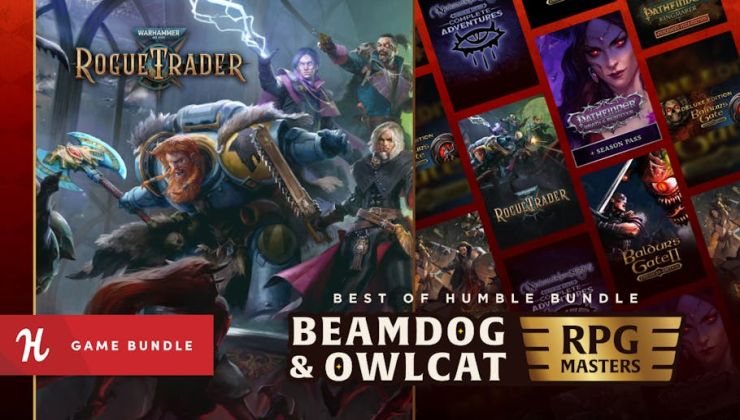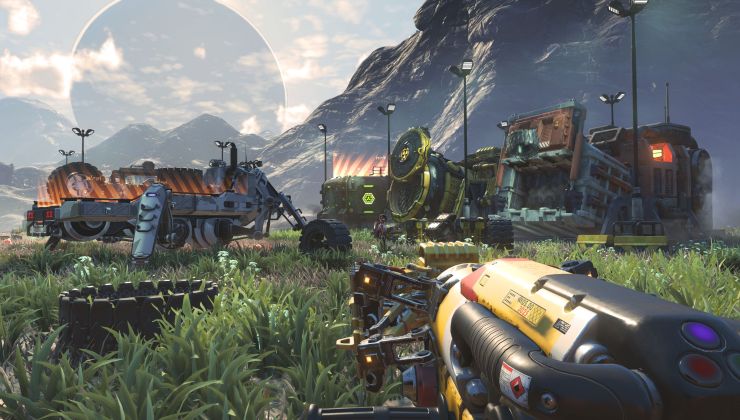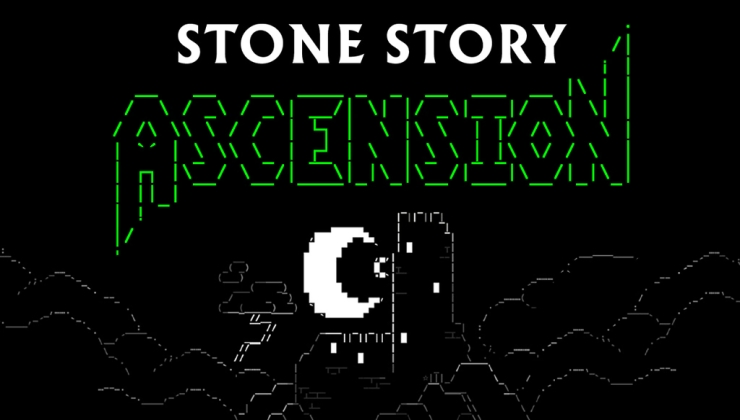OutOfTheBit are currently working on Nanuka: Secret of the Shattering Moon, a cinematic puzzle platformer after previously releasing the positively received Full Void.
Nanuka: Secret of the Shattering Moon looks great! Inspired by the Sicilian landscape, the journey begins on an island that, while initially portrayed as peaceful and picturesque, soon reveals a tale of magical abilities and a looming disaster that players must strive to avert. As the adventure and story progresses, the importance and acceptance of diverse races and beliefs will shine through preciously.

Direct Link
I had the chance to catch up with the team to shoot off some questions and here's what they said.
Q: Could you tell us a little about the inspiration behind Nanuka: Secret of the Shattering Moon?
"We’re all huge fans of the old-school game aesthetic. While Full Void was inspired by games like Flashback and Another World, Nanuka was more of a natural progression in its creation through team brainstorming sessions. That said, we're huge fans of the humor in the Monkey Island games, and Nanuka’s humor has definitely been influenced by those.
Furthermore, Tom—one of the artists working on the game along with Leo—is a great fan of cartoons like Tom & Jerry and Looney Tunes. The goofiness of Nanuka has some traits inspired by those classic cartoons, adding a playful element to the game."
Q: So what exactly is a "cinematic puzzle platformer", how would you say it's cinematic and different to other platformers?
"A cinematic puzzle platformer is all about combining the platforming gameplay with a strong narrative and film-like presentation. What makes it cinematic are the custom animations and seamless transitions that create a movie-like experience. The story is intertwined into the scenes and animations, rather than just relying on text or dialogue.
In our games, we focus heavily on custom animations for characters' movements and interactions to bring the story to life. Each transition is designed to keep the player immersed, much like watching a film. This way, players are not just playing a game but experiencing a continuous and engaging story."
Q: What lessons did you learn from your previous release Full Void?
"The biggest lesson we learned from Full Void was the importance of refining our engine to handle the specific needs of a cinematic platformer. We developed a custom file format to store large animations using minimal memory, which was extremely important for achieving the visual quality we wanted without sacrificing performance.
Another key takeaway came from the experience we gained working together as a team. Developing Full Void helped us build trust and learn how to bring out the best in each other. We now have a great workflow that suits us perfectly, making our development process much smoother, quick and efficient."
Q: Just how difficult is it to get noticed on stores like Steam now as a small team?
"I think it’s difficult for any sized team. Because of the amount of content available, getting noticed on digital stores can be an uphill battle, but we believe that if your game is good it will always find its audience. Wishlisting on stores is incredibly important for all games, but especially indie games. I think Social Media presence and PR also help with getting more eyes on what you’ve created. TikTok seems to be a great tool for getting indie games in the eyes of players, but that in itself is its own art form."
Q: How was your experience releasing on GOG compared with Steam?
"Both platforms are extremely mature and have made releasing on their stores quite an easy task. Steam, with its massive user base and well-established ecosystem, provides significant visibility and community engagement opportunities. Their tools for developers, such as Steamworks, are robust and user-friendly, making it straightforward to manage releases, updates, and community interactions.
GOG, on the other hand, is known for its curated approach and strong focus on DRM-free games, which appeals to a niche but important audience. The process of releasing on GOG feels more personal, with their team providing direct support and feedback throughout the submission process. This can be especially beneficial for indie developers seeking a more tailored experience."
Q: Any thoughts on the repeating mass layoffs in the AAA industry?
"It's a very complex issue. It's been quite disheartening to witness the numerous layoffs and the closure of beloved studios like Tango Gameworks and PlayStation London Studio, among many others. In our opinion, one major factor is that the development costs for AAA games have become so high that it's increasingly difficult for publishers and console vendors to recoup their investments. Additionally, the current generation of consoles has probably not sold as well as hoped. On the upside, there's a resurgence in PC gaming, and the Steam Deck and similar devices are expanding rapidly, benefiting indie games as well. Nintendo is also rumoured to be working on the Switch 2. So, who knows? Things might turn around in the next few years."
Q: With Valve's compatibility tool Proton, how do you feel about continuing Linux support?
"Fair question! Proton is truly amazing and every single Windows-only game we tried so far has worked great on Linux thanks to Proton! Ali, our lead developer, is a big Linux fan and his development setup consists of a PC running Kubuntu. Our games work well with Proton but we prefer making a native port for Linux, that way our games run well on older hardware and are kinder on the battery."
Q: Any thoughts on the Steam Deck? Are you fans?
"The Steam Deck is a fantastic piece of hardware, and it’s been great to see a new kind of handheld come to the market, and bring a different experience comparative to the Switch. We’re fans of gaming, so any piece of hardware or digital storefront that enables gaming to be experienced by more people is never a bad thing. We are looking forward to seeing the evolution of the Steam Deck in future iterations, as well as the Switch 2, and the capabilities of both devices."
Go check out Nanuka: Secret of the Shattering Moon on Steam. It releases next year.
after previously releasing the positively received Full Void.Ooh, I really liked that one! Played through it on the Deck recently.
Guess I ought to check out their new one, then.
Q: How was your experience releasing on GOG compared with Steam?I didn't understand that question. I mean neither Full Void, nor Nanuka have a GOG page (except Super Arcade Football). Did I missed something?
It's kind of heartbreaking though to not see these games there...
Their answer is pretty "standard" unfortunately, it doesn't really tell us how was it and/or why they didn't release their other games on GOG.
But I do appreciate that:
Our games work well with Proton but we prefer making a native port for Linux, that way our games run well on older hardware and are kinder on the battery.






 How to setup OpenMW for modern Morrowind on Linux / SteamOS and Steam Deck
How to setup OpenMW for modern Morrowind on Linux / SteamOS and Steam Deck How to install Hollow Knight: Silksong mods on Linux, SteamOS and Steam Deck
How to install Hollow Knight: Silksong mods on Linux, SteamOS and Steam Deck